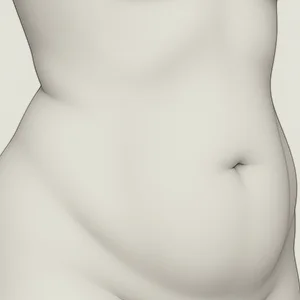No items found.

Excess pockets of fat that persist despite diet and exercise.
Localized fat deposits result from a combination of genetic predisposition, hormonal influences, lifestyle, and age-related metabolic changes. These areas may not shrink proportionally even with healthy eating and regular exercise, making them particularly resistant.
Non-surgical options include CoolSculpting to freeze and reduce fat cells, and Kybella injections to target smaller areas such as submental fat under the chin. Treatment plans are tailored to body area, goals, and number of sessions needed.
Adults close to their goal weight with pinchable, localized fat pockets that don’t respond to lifestyle changes, and who want a non-invasive or minimally invasive approach.



Click on an area to learn more about treatments that can enhance and rejuvenate it.
.webp)
Chin projection and pad/mentalis complex affecting profile balance, dimpling, and the labiomental fold.
Text LinkLateral waist region overlying oblique muscles; fat accumulation here creates “love handles”
Text LinkGluteal region composed of muscle, fat, and skin; cellulite and skin quality changes can affect smoothness, lift, and overall shape.
Text LinkLorem ipsum dolor sit amet, consectetur adipiscing elit. Suspendisse varius enim in eros elementum tristique. Duis cursus, mi quis viverra ornare, eros dolor interdum nulla, ut commodo diam libero vitae erat. Aenean faucibus nibh et justo cursus id rutrum lorem imperdiet. Nunc ut sem vitae risus tristique posuere.
See treatments
Chin projection and pad/mentalis complex affecting profile balance, dimpling, and the labiomental fold.
Text LinkLateral waist region overlying oblique muscles; fat accumulation here creates “love handles”
Text LinkGluteal region composed of muscle, fat, and skin; cellulite and skin quality changes can affect smoothness, lift, and overall shape.
Text LinkLorem ipsum dolor sit amet, consectetur adipiscing elit. Suspendisse varius enim in eros elementum tristique. Duis cursus, mi quis viverra ornare, eros dolor interdum nulla, ut commodo diam libero vitae erat. Aenean faucibus nibh et justo cursus id rutrum lorem imperdiet. Nunc ut sem vitae risus tristique posuere.
See treatments